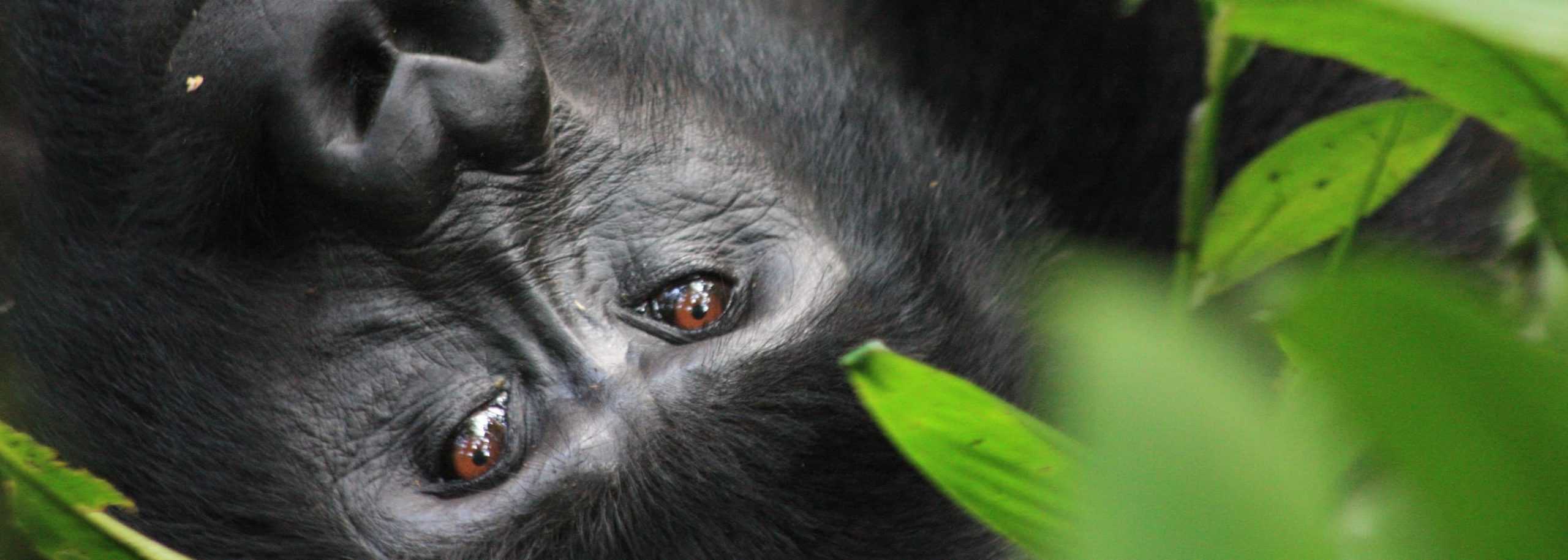Why are conservationists in the business of honey?
Advocacy | 10/02/11
Five years ago, these gentlemen carried their beehives out of Virunga National Park as keeping hives within the forest is illegal, and for good reason. They weren’t happy about it, but they did it and re-established their apiaries near their homesteads or bought other land.
It was at this time that the International Gorilla Conservation Programme, or le Programme International de Conservation des Gorilles en français, became intimately involved in the business of honey. Although beekeeping inside protected areas would seem to be harmless, it is a threat to the park and to the wildlife, including in this case the critically endangered mountain gorillas.
When it comes time to harvest honey, beekeepers use small fires to smoke the bees out of the hives long enough to extract the honeycomb. Trouble is that these small fires can spread as what happened in 2009 when a fire accidentally started by a beekeeper near Volcanoes National Park in Rwanda spread, crossing over into Uganda’s Mgahinga Gorilla National Park.

Fire in Volcanoes National Park and Mgahinga Gorilla National Park in July 2009 burned around 300 hectares.
There are other reasons that beekeeping is a threat. Beekeepers will alter the environment around the beehive to better position the hives and attract the bees including chopping trees or branches. Beekeepers will also take advantage of their time in the forest to gather other resources, setting snares for antelopes or collecting firewood or timber. The presence of people in the park also has the potential to increase exposure of mountain gorillas to human pathogens.
But these beekeepers aren’t criminals nor are they maliciously using the park. They’re looking for a livelihood. IGCP has worked with the beekeepers over the last five years to make sure that the transition to keeping their hives outside the park has proceeded smoothly so that the hives didn’t return to the park and that the beekeepers themselves wouldn’t harbor ill will toward the park and conservation efforts in general. For conservation efforts not to be in vain, we need surrounding communities to work for conservation and not against it.
Unfortunately, this same group had a serious setback when insecurity in the Mikeno Sector reached a peak in 2008 when many families fled, had their homes and their hives destroyed, and worse. It is only now that life for the beekeepers and their families resembles some kind of normal. Last November, the Union des Apiculteurs de Secteur Mikeno et Nyamulagira comprised of over 400 beekeepers in associations throughout the Mikeno Sector elected a new executive committee and IGCP is re-intensifying efforts to support the union.

IGCP's Wellard MAKAMBO (left) and Beda MWEBESA (green shirt) along with beekeeping consultant Abraham N'Simba NDATABAYE discuss with beekeepers in Kibumba on Feb 9.
The goal for IGCP is to reduce the threat to the park and to increase livelihoods. It is also through beekeeping that we stay connected to the communities. Throughout this week, thanks to a grant from the Netherlands Directorate General for International Cooperation through the Greater Virunga Transboundary Collaboration, an IGCP team is intensely working with the executive committee and beekeepers in general to put mechanisms in place so that profits can be made and that those profits trickle down to the individual members.
So that is why IGCP is in the business of beekeeping and honey. The next post will recount our intensive efforts this week with the beekeepers of Mikeno Sector.


